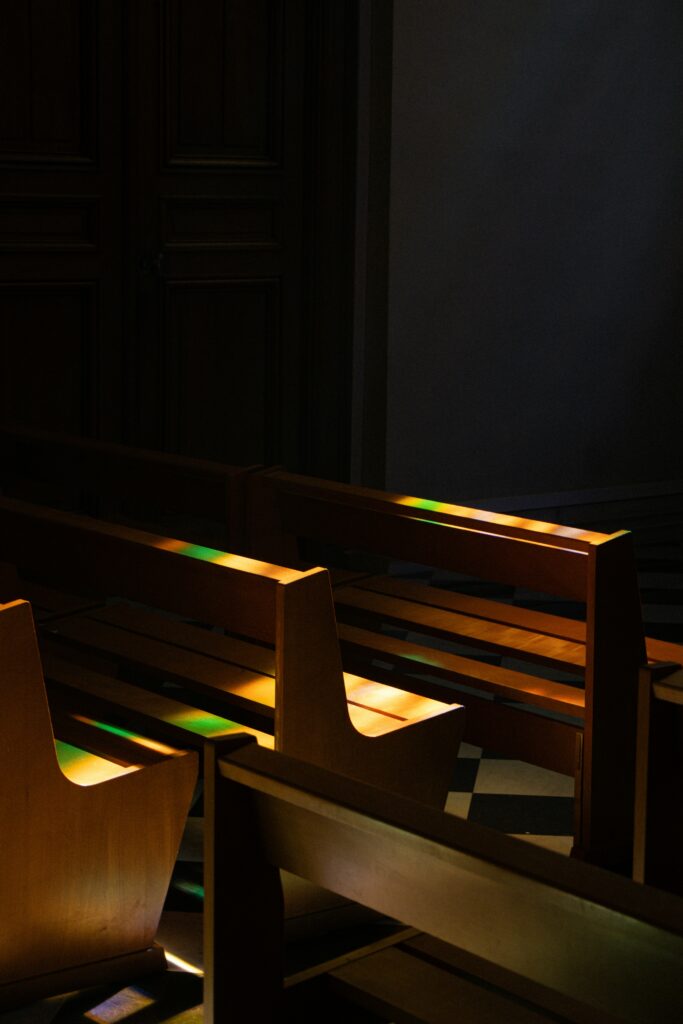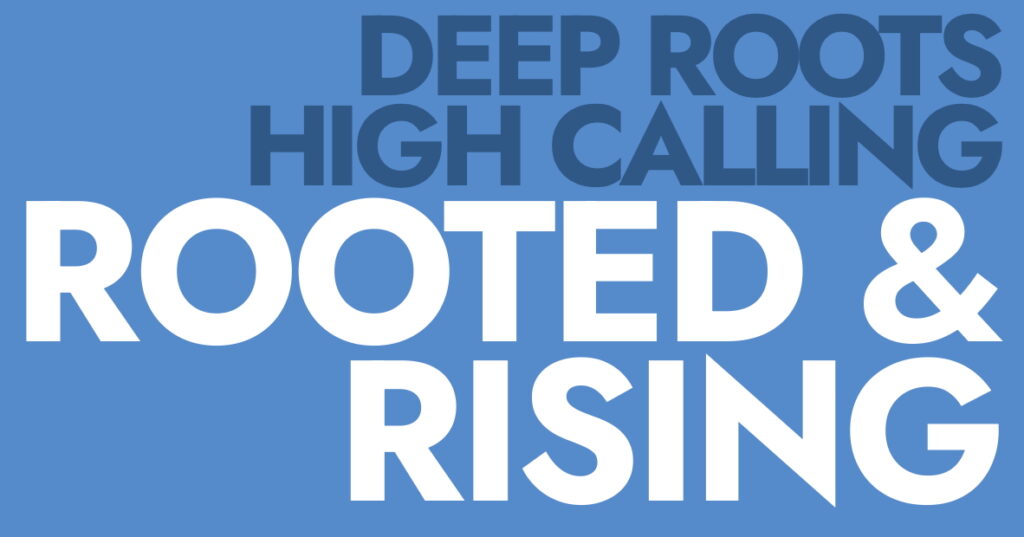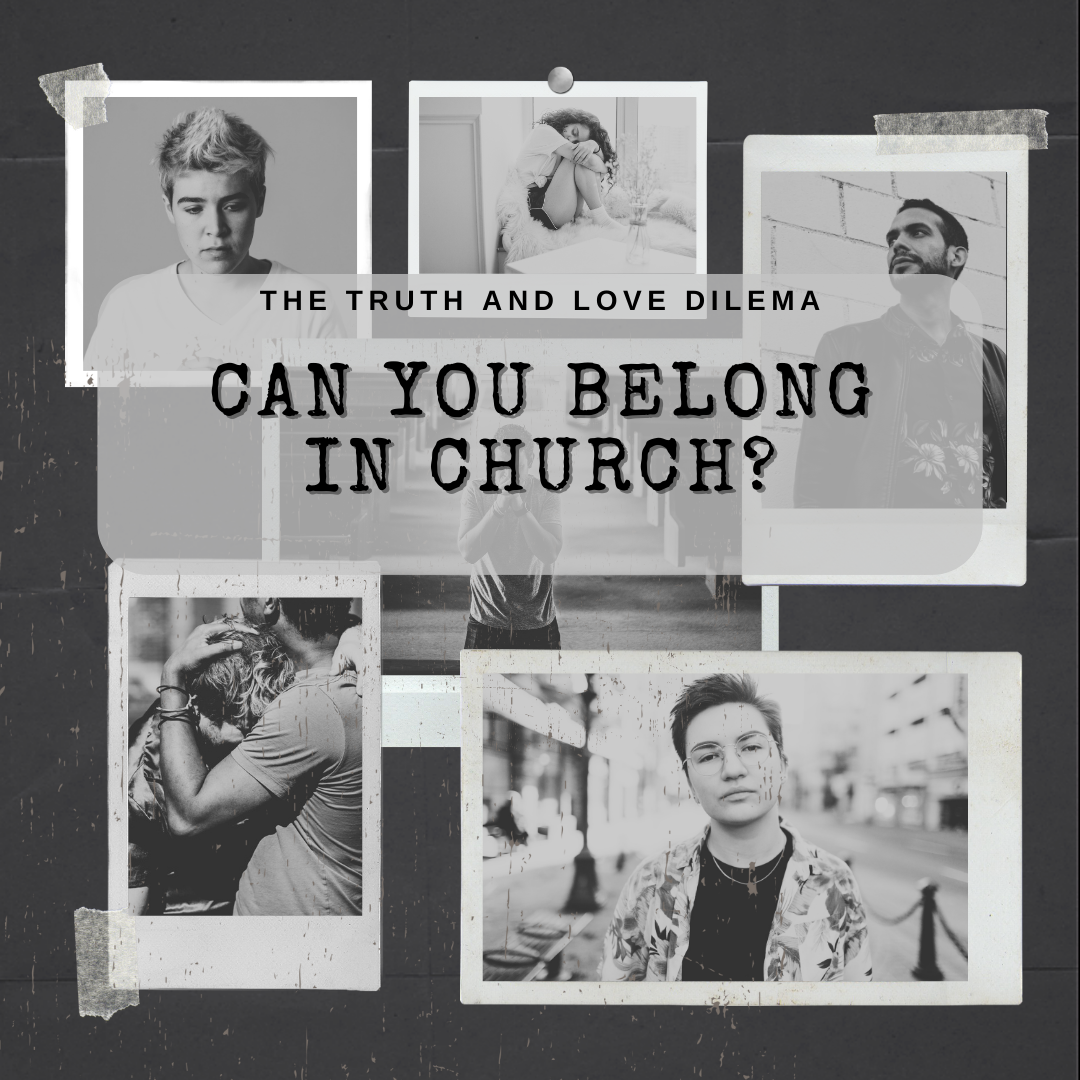Church hurt is real. For many, it is not just a bad memory. It is a deep, spiritual wound that lingers long after the service ends. You may have walked into church looking for healing, but walked out carrying even more pain.
You are not alone. Countless people have experienced the same kind of grief, shame, and confusion. Some keep showing up, silently hurting. Others have walked away completely, unsure if they will ever come back.
This post is not about blaming the Church. It is about telling the truth, naming the pain, and returning to the only one who can heal it. Jesus is not afraid of your church hurt. He is ready to meet you in it.
Here are 7 powerful truths that can help you begin to heal from church hurt and rediscover the gospel that makes you whole..
What Is Church Hurt?
Church hurt happens when the place that was supposed to help you grow in grace becomes a source of guilt, rejection, or confusion. It can show up through:
- Harsh judgment from leaders or members
- Legalism that crushes instead of frees
- Hypocrisy or abuse by those in authority
- Rigid theology used as a weapon
- Exclusion from church culture or community
This pain cuts deep because it mixes spiritual authority with human brokenness. And when someone uses God’s name to wound, the damage doesn’t just feel personal.
*If your experience of church hurt includes physical, sexual, or emotional abuse, please read the note below about finding safety and professional support.

1. You Are Not Overreacting. You Are Hurt.
If someone told you that you were just being too sensitive, they missed the point.
Church hurt is not a personality flaw. It is not spiritual immaturity. It is real pain.
Jesus never told the weeping to stop crying. He did not rebuke the outcast for wanting to belong. He met people in their grief with compassion, not criticism.
Your pain matters. You are not overreacting. You are not weak. You are someone who was wounded by the very people meant to protect you. That deserves to be acknowledged, not dismissed.
Healing starts with honesty. If you were hurt, say so. You do not have to pretend to be fine.
2. Jesus Understands Church Hurt More Than Anyone
No one understands spiritual betrayal more than Jesus. His harshest critics were not pagans or politicians. They were religious leaders.
The very people entrusted with God’s Word turned on the Word made flesh.
Jesus was mocked, rejected, and condemned by those who claimed to know God. He was betrayed with a kiss. He was abandoned by those He loved. He was crucified by the people He came to save.
If you have experienced church hurt, know this—Jesus sees you. He does not stand at a distance. He walks with you in the pain.:
“Come to Me, all who are weary and burdened, and I will give you rest” (Matthew 11:28).
Why Church Hurt Feels So Personal
Church hurt strikes at the deepest part of us. We come to church with our souls open. We expect grace. When we receive rejection or manipulation instead, it feels like betrayal.
This isn’t like being disappointed at work. It’s spiritual trauma. And trauma changes how we see ourselves, others, and God.
In the Bible, Jesus often confronted this. He flipped tables. He exposed religious leaders who prioritized control over compassion. He didn’t dismiss the abused, He defended them.
You’re not crazy for being hurt. You’re not bitter for still grieving. You’re human. And God is not offended by your healing process.
The Ripple Effects of Church Hurt
Church hurt can lead to:
- Spiritual numbness or confusion
- Anxiety around Christian community
- Shame that keeps you isolated
- Deconstruction or total disconnection
But here’s the truth: the pain caused by people does not mean you need to abandon the presence of God. What they broke, He can restore.
When Church Hurt Leads to Deconstruction
Deconstruction isn’t the enemy. It can be a form of spiritual honesty. But if you’re not careful, deconstruction can become disconnection.
Jesus welcomes your questions. He isn’t afraid of your doubts. The key is to deconstruct unhealthy religion—not destroy the relationship with the One who can heal it.
Thomas doubted. Peter denied. Paul persecuted. But Jesus restored them all.

3. You Can Be Hurt by the Church and Still Loved by God
Church hurt may have made you feel rejected, but it did not remove you from God’s love.
You are still His.
Your worth is not tied to your church attendance. Your identity is not defined by how others treated you in a religious space. God’s grace is deeper than your wounds, and His presence is not confined to any building.
Some people misrepresented Him, but they did not replace Him. Just because you were mistreated in His name does not mean you are forgotten by Him.
If people need courage to walk into church, it’s because the church has given them a reason to fear.
A Personal Apology
Before we go any further, I want to pause and say this:
I’m sorry.
If you have been wounded by the Church—by pastors, leaders, or Christian spaces—I grieve that with you.
I’m sorry for the times we cared more about appearances than people.
I’m sorry for when we silenced instead of listened.
I’m sorry for the harm done in the name of truth without love.
And I’m sorry for when love was preached but never practiced.
As a follower of Jesus and as someone who helps lead in His name, I want to acknowledge where we have failed. Your pain is valid. Your story matters. You should never have had to question your worth in the very place that was meant to remind you of it.
4. Feeling Unseen Doesn’t Mean You’re Unwanted
Remember the woman in Mark 5? She was hemorrhaging for twelve years—physically, emotionally, spiritually.
She wasn’t just sick. She was shamed. Labeled as unclean. Kept out of the temple. Left behind by religion.
But when she touched Jesus, He didn’t just heal her. He saw her.
“Daughter, your faith has made you well.”
That one word—Daughter—restored what religion had taken. She didn’t just need healing. She needed belonging.
If church hurt made you feel invisible, please hear this: Jesus sees you. He knows your name. And He calls you beloved.
5. The Church Is Broken—But So Are We
This doesn’t excuse the harm. But it explains why it happens.
The Church is made up of broken people trying to follow a perfect Savior. And sometimes, that brokenness spills out in the form of pride, politics, shame, and fear.
It’s okay to name what hurt you. It’s also okay to admit that you’ve hurt others. Healing begins when we all stop pretending to be fine and start walking in grace. The goal isn’t a perfect church. It’s a repentant one. A place where both truth and love are held tightly. Together.
Healing from church hurt often involves releasing bitterness and making space for God to work again. If your heart feels crowded by pain, pride, or past wounds, Too Full to Be Filled: Surrendering What Divides Us offers a powerful next step.
6. Healing Is Possible—But It Takes Time
You do not have to stay stuck in the pain. Healing is not only possible—it is promised.
But healing is not a quick fix. It is a journey.
Some days will feel like progress. Others will feel like relapse. You might take two steps forward and one step back. That does not mean you are failing. It means you are human.
What does healing look like?
- Naming what hurt you
- Giving yourself permission to grieve
- Bringing your pain to Jesus
- Finding a safe community
- Allowing God’s Word to restore you
You do not need to rush. You need to rest. And remember, God is more patient with your healing than you are.
7. Jesus Is Still Worth Following
This may be the most important truth.
Jesus is not the Church. And the Church is not Jesus.
If church hurt has caused you to step away from faith, know this: you’re not leaving Jesus behind. You’re leaving something that misrepresented Him. Don’t let pain disconnect you from the only One who can heal it.
Jesus still loves the Church. And He still loves you.
He is building something more beautiful than any broken institution—a people rooted in grace, marked by love, and formed by the gospel.
And yes, there is still a place for you.
What Should the Church Do About Church Hurt?
If we want to reflect Christ, we must repent like Christ-followers.
That means churches must:
- Listen before they lead
- Apologize when they harm
- Welcome before they judge
- Create space for doubters, seekers, and wanderers
- Elevate Jesus over politics, performance, or pride
Churches that confront church hurt don’t water down the gospel. They live it more clearly.
Because truth without love is cruelty. And love without truth is chaos. But together—they are the heart of Christ.
Steps Toward Healing from Church Hurt
If you’re ready to begin healing, here’s where to start:
1. Name the Pain: Call it what it was. Abuse, neglect, exclusion, betrayal. Clarity brings freedom.
2. Bring It to Jesus: Tell Him the truth. He can handle your anger. He can hold your sadness.
3. Seek Safe People: Look for gospel-centered community that welcomes the hurting, not just the polished.
4. Stay in the Word: Let Scripture renew what religion distorted. Start with Jesus. Stay with Jesus.
5. Move at Your Own Pace: Healing isn’t a race. It’s a relationship. Walk slowly. Rest deeply.
You Still Belong
This is the gospel: Jesus doesn’t run from the mess. He runs toward it.
You are not disqualified. You are not disowned. You are not a burden.
If you’ve been labeled, silenced, or shamed, let this post be a declaration:
You still belong.
You are still seen.
You are still loved.
Church hurt is real. But it is not the end of your story.
Jesus is still writing it.
All at Once; All The Time
No either/or.
Only both/and.
No spectrum to measure,
no pendulum to swing,
no scale to balance.
He is not divided.
Not shifting. Not split.
He is fully Truth, fully Love—
Unmoved. Unshaken. Unchanged.
To divide them is to diminish Him.
To separate them is to shrink the infinite.
A hollow attempt to remake the unmade.
And when we love—
we dare not choose one and forsake the other.
Love without truth is a shadow.
Truth without love is a blade.
One soothes but does not save.
One cuts but does not heal.
But held together,
they are a fire that refines,
a light that reveals,
a love that calls the dead to rise.
He is fully Truth, fully Love—
All at once. All the time.
Not half of one, nor less of the other—
All at once. All the time.
Not shifting with culture, nor bending to fear—
All at once. All the time.
Not a choice to make, nor a side to take—
All at once. All the time.
And if we are His—
we will love like this.
With truth that does not wound.
With love that does not lie.
With grace that restores.
With holiness that refines.
Not one or the other—
but both.
All at once. All the time.
The Journey Forward: Life After Church Hurt
Healing from church hurt is not just about moving on. It’s about moving forward—differently. With eyes wide open and a heart that still believes healing is possible.
You might be wondering: Where do I go from here?
That question deserves more than a shallow answer. Because real healing takes time, intention, and the courage to reimagine what spiritual community can be.
For many, church hurt becomes a reason to walk away from all things spiritual. That reaction is deeply human. But what if the very pain meant to push you out becomes the place where God pulls you closer?
Rebuilding a Relationship with God
One of the quiet tragedies of church hurt is how it distorts our view of God. People associate His name with pain. Scripture feels like a sword instead of a refuge. Prayer feels empty. Worship feels unsafe.
But God is not the one who hurt you.
He is not confused by your distance. He’s not insecure about your questions. He is ready to rebuild with you, brick by brick.
Start small. One prayer. One verse. One honest moment. You don’t have to feel it all at once. You just have to show up—raw, real, and open.
God is not waiting for a polished version of your faith. He’s waiting for the honest version. The one that says, “God, I want to believe again, but I’m still bleeding.”
And He responds, “That’s enough. Let’s begin.”
Rethinking Church
You might be ready to give up on church altogether. And no one would blame you. But maybe, instead of giving up on church, it’s time to rethink what it could be.
The early Church wasn’t perfect, but it was personal. People broke bread together. They shared their struggles. They met in homes, not just temples. They carried each other’s burdens and forgave each other’s failures.
What if church looked like that again?
A table. A conversation. A space where masks aren’t required. Where grace is real and growth is slow but steady.
Church does not have to be a stage and a sermon. It can be a living room and a prayer. A group of friends who don’t have all the answers but hold onto Jesus anyway.
You get to define church by Scripture—not by your past.
Becoming a Safe Space for Others
As you heal from your own church hurt, something beautiful happens. You become the kind of person who can walk with others through their pain. Your wounds become wisdom.
You start to recognize the signs of spiritual exhaustion.
You learn how to listen without fixing.
You speak truth with tenderness.
You stop pretending and start creating space.
And suddenly, your healing isn’t just about you anymore. It becomes healing for someone else too.
The Church needs people who have walked through fire and still believe in redemption. People who know what it’s like to be unseen—and vow to never let others feel that way.
This is not about perfection. It’s about presence. And your presence could be the very thing that keeps someone else from giving up.
You’re Not Alone in the Wilderness
If you feel like you’re wandering, welcome to the wilderness. You’re not lost. You’re in transition.
Moses met God in the wilderness.
Elijah heard God’s whisper in the wilderness.
Jesus was strengthened in the wilderness.
The wilderness is not punishment. It’s preparation.
So if you’re there, do not despair. You’re not alone. God walks slower in the wilderness, but He never walks away. He is not rushing you. He is shaping you.
Church hurt may have started your wilderness. But it doesn’t have to define it. Let it become the soil where something deeper grows—intimacy with God, clarity in your calling, and compassion for others.
Let Your Story Speak
You might not realize this yet, but your story carries power.
There’s someone else who feels exactly like you do. Someone who thinks no one would understand. Someone who almost gave up.
Your story might be what gives them the courage to keep going.
So speak. When you’re ready, speak. Tell your story—not to shame the Church, but to lift up the brokenhearted. Not to tear down, but to build up. Not with bitterness, but with boldness.
Don’t let this be the end of the conversation.
Sign up for our newsletter for encouragement, stories, and resources.
Share your thoughts below: Have you ever felt like an outsider in church? Let’s talk.
Drop a comment below. You are loved. You belong. Jesus sees you.
A Necessary Word About Abuse
If your experience of church hurt includes physical, sexual, or emotional abuse, please hear this clearly:
That was not just hurt. That was abuse.
And abuse is never excused by spiritual language, church authority, or biblical misinterpretation.
Jesus does not condone abuse. He confronted it. He exposed it. And He stands with the wounded—not the ones who caused the wounds.
If you are in an unsafe situation or still recovering from one, know that your healing may require more than spiritual encouragement. It may require professional counseling, legal support, and a community committed to justice and safety.
You are not weak for needing help. You are brave for seeking healing.
Table of Contents






Leave a Reply